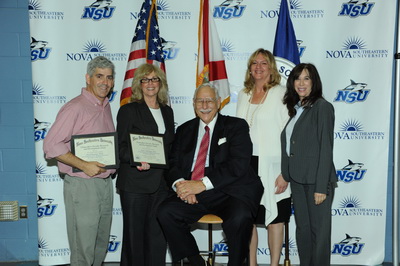A Prekindergarten Peer-Mediated Intervention for Children with Autism
Grant Winners
- Lorraine Breffni, EdD – Mailman Segal Center for Human Development
- Manny Gonzalez-Abreu, PhD, LMFT, BCBA – Mailman Segal Center for Human Development
- David Reitman, PhD – Center for Psychological Studies
- Nancy Lieberman, EdS – Mailman Segal Center for Human Development
- Miriam Ade, EdS – Mailman Segal Center for Human Development
Deans
- Roni Leiderman, Ph.D – Mailman Segal Center for Human Development
- Karen Grosby, M.Ed. – Center for Psychological Studies
Abstract

Autism Spectrum Disorder (ASD) is a pervasive developmental disorder which is characterized by difficulties with social interaction, impairments in communication, and a restricted repertoire of interests and activities. Children with ASD often exhibit atypical social play skills. They display less spontaneous communication and social reciprocity, and frequently engage in eccentric behaviors which can be misinterpreted by typically developing peers. As a result, children with ASD are commonly isolated and/or excluded from play situations. Early intervention strategies are critical to addressing these social deficits. A range of studies have demonstrated that using peers who have been explicitly taught how to direct interactions to children with ASD in order to increase the frequency of social initiations appears to have positive effects on the social behavior of children with ASD. This study is designed to assess the effects of a peer-mediated intervention on the number of social initiations exhibited by children with ASD. A total of twelve children will be selected to participate; six typically developing four and five-year-old children and six four and five-year-old children with an educational eligibility for autism. The six typical children will serve as peer models for the target children with ASD. The intervention will take place during playground time. Single subject methodology utilizing a multiple-baseline across subjects design will be employed to assess the treatment effects. Social initiations by both target child and peer model exhibited in terms of vocalizations, gestures, and physical behaviors will be measured throughout each phase of the study. This study shall serve as a pilot with the potential of identifying effective strategies to promote the acquisition of social behaviors in preschoolers with ASD. It is envisioned that the study will spearhead further research and widespread implementation of these strategies at the preschool and kindergarten level both locally and beyond.